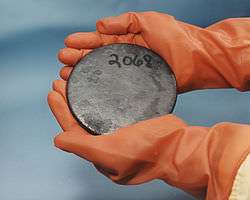Why Are Republicans, Israeli Officials Upset About the Iran Nuke Deal?

Republicans are not happy about the deal relating to Iran's nuclear program that was announced over the weekend. The deal includes, among other things, Iran halting uranium enrichment above 5 percent and neutralizing "near-20% enriched uranium".
House Majority Leader Eric Cantor (R-Va.) has expressed concern about the enrichment allowed in the deal, saying "Loosening sanctions and recognizing Iran's enrichment program is a mistake, and will not stop Iran's march toward nuclear capability."
Sen. Marco Rubio (R-Fl.) has a statement on his website that reads in part:
By allowing the Iranian regime to retain a sizable nuclear infrastructure, this agreement makes a nuclear Iran more likely. There is now an even more urgent need for Congress to increase sanctions until Iran completely abandons its enrichment and reprocessing capabilities.
Sen. Ted Cruz (R-Texas) says that he agrees with Israeli President Benjamin Netanyahu, who called the deal "a historic mistake." A statement from Sen. Cruz begins:
According to the interim agreement regarding Iran's nuclear program that was reached this weekend in Geneva, not one centrifuge will be destroyed. Not one pound of enriched uranium will leave Iran.
So, what is all this fuss about uranium enrichment, and why does it matter?
Less than one percent of natural uranium is uranium-235, the isotope needed for nuclear power and nuclear weapons. Enriched uranium is uranium that has had the percentage of uranium-235 increased, which can be done by using centrifuges.
Low-enriched uranium (3.5 percent to 5 percent) can be used for nuclear power. In order to develop a nuclear weapon highly enriched uranium (about 90 percent) is needed. With this in mind, it initially seems that the requirements that Iran halt enrichment at 5 percent and dilute or convert uranium enriched at 20 percent greatly reduces the risk of Iran obtaining a nuclear weapon.
However, the deal only requires Iran to not install any new centrifuges, not have them destroyed. This means that Iran could renege on the deal and work towards a so-called "nuclear breakout." According to David Albright, president of the U.S. Institute for Science and International Security, once the enrichment conditions of the deal are met "the breakout time - how long it would take Iran to produce sufficient highly-enriched uranium for one atomic bomb - would lengthen from at least 1-1.6 months to at least 1.9-2.2 months if the Iranians used all their installed centrifuges."
The New York Times has a good graphic illustrating the deal and its impact on uranium enrichment, which can be seen here.
The fact that Iran could still develop a nuclear weapon through aggressive uranium enrichment once the new deal is implemented is what has Republicans, not to mention Israeli officials, concerned. An unnamed official from Netanyahu's office summarized the concerns as follows, "The agreement makes it possible for Iran to continue enriching uranium, permits Iran to keep centrifuges that would allow it to create fissile material for nuclear weapons."
Yesterday, Iranian President Hassan Rouhani said that his country would never seek a nuclear weapon.
Netanyahu and some Republicans may not be happy with the deal, which has not eliminated the possibility of Iran developing a nuclear weapon. That said, the diplomats involved in the deal deserve some praise for managing to come up with any deal at all given the far from ideal relationship between Iran and the West, particularly the U.S.
It should not be surprising that Netanyahu isn't a fan of the recent deal. It is very unlikely that there are any conditions under which Israel and Iran would realistically be able to meet to discuss Iran's nuclear program, especially given that Netanyahu has said that Israel is willing to "act alone" to ensure Iran does not develop a nuclear weapon and has called President Rouhani a "wolf in sheep's clothing."
That Republicans are critics of the deal should not be a surprise, there is a Democrat in the White House. As Fred Kaplan has rightly pointed out, "Had George W. Bush negotiated this deal, Republicans would be hailing his diplomatic prowess, and rightly so."


Show Comments (33)